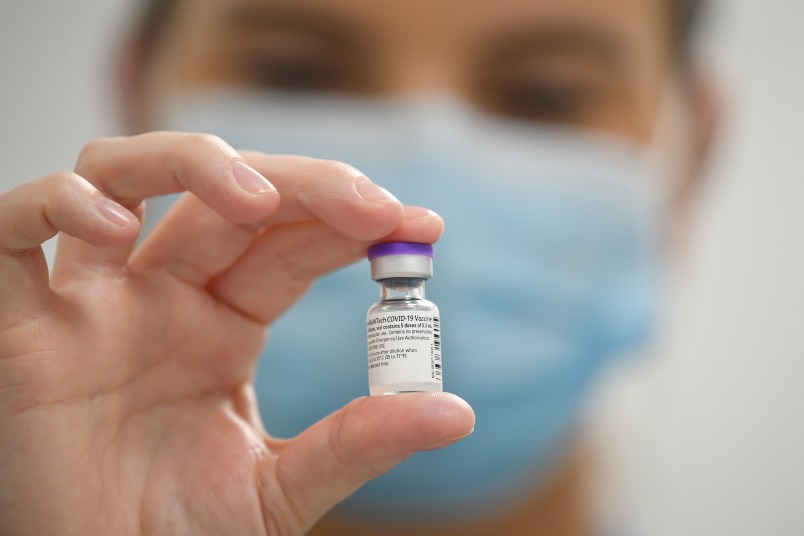Over the last few days I’ve been collecting information and thinking through a few more posts on the progress of the Delta-driven 4th COVID wave. One of the conclusions I’ve been ruminating on is that the CDC has been doing a pretty good job in 2021 on what the CDC is designed to do. (It is important to remember, and bewildering to remember, that the CDC actually wasn’t posting COVID case, testing or mortality data through 2020. It fell to a DIY journo collaborative.) But it’s clear that we need an entity that is capable of and empowered to do a lot more. In the current moment there is just a lot of data about the current shape of the pandemic that we simply do not have. We do have that data, or a lot of it, for the UK and Israel because they have centralized health care systems that have all the data. We will come back to that. But for the moment I wanted to flag for your attention this week’s Morbidity and Mortality Weekly Report (MMWR) from the CDC. It contains three new studies which go directly to the most critical questions we’re facing.
Two studies speak directly to vaccine effectiveness both against Delta and also effectiveness over time. One is for New York State and the other is nationwide. A third looks at how vaccinations are doing in nursing homes and assisted living facilities.
A point I was making a couple weeks ago is that when it comes to looking at breakdowns of infection, disease and mortality by vaccination status, we really need data from the summer – when a lot of adults had been vaccinated and when the Delta variant was the dominant strain of the disease. Looking at breakdowns by vaccination status going back to January amounts to comparing apples and oranges. It can obscure more than it clarifies about what’s happening now. These three studies each give us good before-and-after data – what was happening before Delta took hold and what is happening after.
I don’t want to characterize too much about the studies since none of this is my specialty and these are specialist reports. But the gist is pretty clear: Vaccines are holding up very well against hospitalization and pretty well against infection. In New York State vaccine effectiveness against infection trended down from 91.7% to 79.8% from early May through late July. That’s a significant but not game-changing decline. And it’s on the good side of the range of studies we’ve seen around the country and around the world. The report says that effectiveness against hospitalization was “generally stable from 91.9% to 95.3%.”
Without going into too many details, the national study was also broadly in line with our current understanding – a possible small drop in effectiveness against hospitalization during the Delta period. For people who got sick between March and May effectiveness was 87% and then 84% in the latter period. Notably, though, for the whole period efficacy against hospitalization was 90% for people with healthy immune systems and 63% among those with immune compromise. So a big difference. That certainly explains the decision to authorize third doses for everyone in that latter category. The study saw no clear change in effectiveness between those who got vaccinated early in the year and those who did so later. But it’s important to note that the study only covers, roughly, the first six months. So it doesn’t really get into the window people have concerns about.
I’ve tried to give a very broad read of what’s in these studies. I’m more curious to see the analyses of other experts. Broadly, they confirm a relatively positive version of what we think we know. The value is just that this data is from in the US, during the relevant period and analyzed in a comprehensive way. That’s much better than having to piece together a picture based on the data released by a few random counties or states which happen to be generating and publishing vaccination status data on a weekly or even monthly basis.






